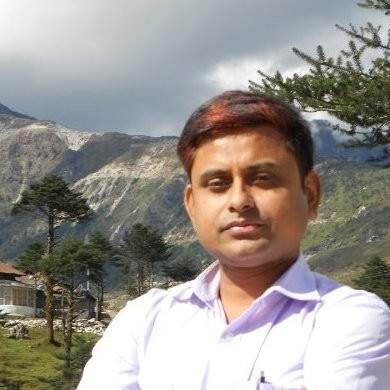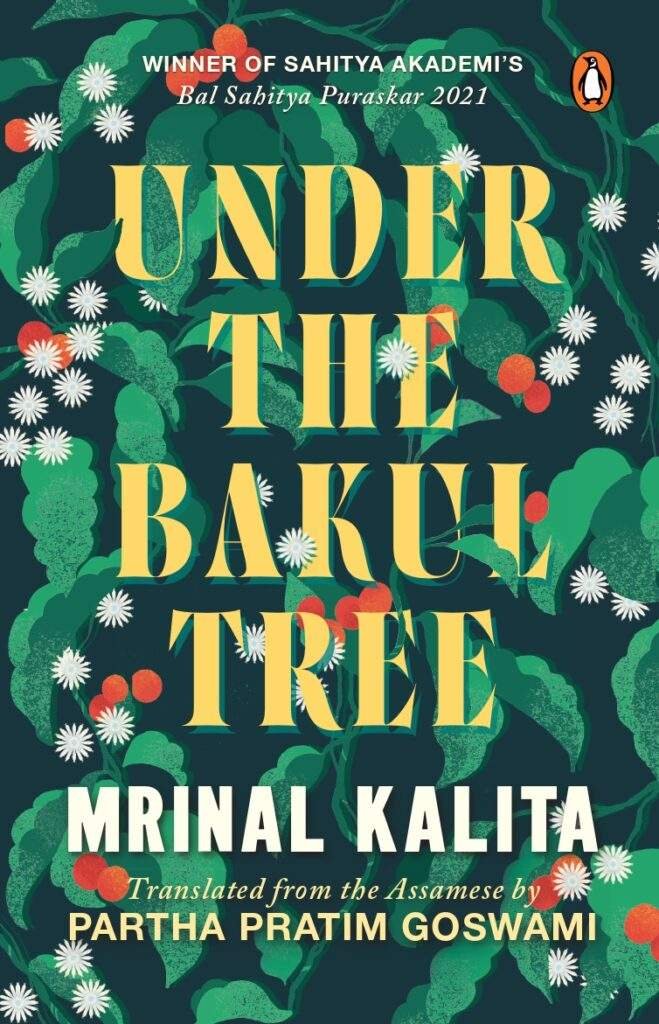Partha Pratim Goswami stands as a beacon of linguistic brilliance and cultural bridge-building through his remarkable contributions to the world of translation. Renowned for his adeptness in conveying the nuances of Assamese literature to a wider audience, Goswami has garnered acclaim for his translation of the Sahitya Akademi Award-winning book “Bokul Phular Dore” by Mrinal Kalita.
Hailing from the culturally rich region of Assam in Northeast India, Goswami has been instrumental in bringing Assamese literature to the forefront of global recognition. His journey into the world of translation began with a profound love for his native language and a desire to share its treasures with a wider audience.

“Bokul Phular Dore,” a masterpiece in Assamese literature by Mrinal Kalita, captures the essence of rural Assam with its evocative storytelling and rich character development. The novel delves into the complexities of human emotions, societal norms, and the timeless struggle between tradition and modernity.
Goswami’s translation of “Bokul Phular Dore” transcends mere linguistic conversion; it embodies a deep understanding of both the source material and the target audience. Through his meticulous attention to detail, Goswami ensures that the essence and cultural nuances of the original work remain intact, allowing readers unfamiliar with Assamese culture to immerse themselves fully in the narrative.
He shares an insight to his career and wisdom with us in an exclusive interview. Here’s what he has to say-
Q.1. Since you have translated a number of Assamese books into English, what’s your favourite part of this profession?
Ans:- Translating notable Assamese literary works into English has been a fulfilling journey for me, but to pinpoint a single favourite aspect of the profession is a challenging task.
As a translator, I am essentially a conduit through which the richness and depth of Assamese literature can reach a wider, global audience. This process involves not just converting words from one language to another, but also delving deeply into the cultural nuances, historical contexts and linguistic subtleties inherent in each text.
I find immense satisfaction in the act of unraveling the complexities of Assamese literature and presenting it in a form that resonates with English-speaking readers. Each translation project is a voyage of discovery that allows me to immerse myself in different worlds, perspectives and narratives.
I am also proud to contribute to the preservation and promotion of Assamese literary heritage on a global platform. By translating these works into English, I help ensure that the voices of Assamese writers are heard far beyond their homeland, fostering greater appreciation and understanding of their unique literary contributions.
At heart, my favourite part of this profession is the profound sense of connection it fosters – connecting diverse cultures, connecting readers with new perspectives, and ultimately connecting hearts and minds through the power of storytelling that transcends linguistic boundaries.
Q.2. Has the practice of translation transformed your perspective on life and literature? How?
Ans: The practice of translation has broadened my understanding of diverse perspectives and ways of thinking, fostering empathy and openness towards different cultures and worldviews.
It has also taught me to approach literature with a more critical and analytical eye, as I grapple with the challenges of rendering meaning and intent across linguistic boundaries. It has also made me more aware of the power dynamics inherent in language and the role of translation in amplifying marginalized voices and narratives.
The practice of translation has enriched my creative expression and linguistic dexterity. I strive for fidelity to the original text while ensuring readability and resonance in the target language.
Overall, translation has deepened my appreciation for the beauty and complexity of language and literature. It has also fostered a greater sense of inter-connectedness and empathy across cultures and communities. Translation has been a transformative journey that continues to shape my perspective on life and literature in meaningful ways.
TO BUY THE BOOK ONLINE, CLICK HERE
Q.3. We all know about the love and appreciation “BokulPhoolor Dore” received among the readers’ community; can we also know what are your personal thoughts on the book? What does your working process look like?
Ans:- The novel ‘Bokul Phulor Dore’ is a shining gem of Assamese literature. In an era dominated by electronic media, when the joy of reading books is gradually fading worldwide, it’s remarkable to note that this novel has not only retained its popularity but has emerged as one of the most popular Assamese works of the last decade. Beyond its widespread acclaim, it’s the novel’s profound themes that truly set it apart—be it systemic corruption, a failed education system, the impact of domestic violence on a child’s life, or the role of an idealistic and imaginative mentor in nurturing the future of our nation. It’s not a novel for just young adults, it’s a novel for young and adults alike. It strikes a chord in the deepest recesses of your heart. Even after you finish reading the book, your thoughts will linger.
My working process involves several key steps. Firstly, I immerse myself in the source text, carefully analysing its themes, style, and context to gain a thorough understanding of the author’s intentions so as to capture the essence of the original work. Once I have a firm grasp of the source text, I begin the translation, carefully selecting words and phrases that convey the intended meaning while also maintaining the stylistic integrity of the original. This often involves making difficult choices to balance fidelity to the source with readability and resonance in the target language.
In case of ‘Bokul Phulor Dore’, I consulted regularly with the author to clarify any ambiguities and to ensure accuracy and authenticity.
Q.4. We have previously talked to a lot of young people and learned that a section of them loves to read but fails when it comes to pouring out their emotions on a paper. What would you like to advise them in such cases?
Ans: I’m not sure if I’m the best person to dish out advice, but based on my own journey, here are a few nuggets of wisdom for those who adore reading yet grapple with expressing their emotions on paper.
First, embrace the power of practice. Just as mastering a new language or skill requires consistent effort, so does the art of writing. Set aside time each day to write freely, without judgement or expectation. Allow your thoughts and emotions to flow onto the page, knowing that every word you write is a step towards improvement.
Second, look to the literature you love for inspiration. Pay attention to how your favourite authors evoke emotion through their writing—the descriptive language they use, the way they construct characters and scenes, and the themes they explore. Use these insights as a guide to add depth and resonance to your own writing.
Also, don’t be afraid to experiment with different forms of expression. Whether it’s poetry, prose, journalistic writings or storytelling, find the medium that resonates most deeply with you and allows you to convey your feelings authentically.
Finally, remember that writing is a deeply personal journey. Don’t compare yourself to others or be discouraged by perceived shortcomings. Embrace your unique voice and experiences, and trust that your words have value, even if they don’t always come easily.
At its core, writing is a skill that can be honed through patience, practice and self-discovery. Keep reading, keep writing, and above all, keep exploring the depths of your emotions through the written word.

Q.5. We would love to know if you have any books which you have translated and felt the most connected with.
Ans: To be candid, the novel Bokul Phulor Dore/Under the Bakul Tree is the translation project that resonated with me the most. Upon reading it for the first time, I felt a deep connection as if the narrative echoed my own reflections on society. As someone who is deeply concerned about social issues, I’ve long been troubled by the shortcomings of our education system in creating socially conscious individuals capable of making meaningful contributions to society. The novel’s portrayal of the need for an idealistic and imaginative mentor to guide future citizens struck a chord within me. Its spirit encapsulated my own, inspiring me to undertake the task of translating it and sharing its message with a wider global audience.
As Goswami continues to weave his magic with words, his legacy as a champion of Assamese literature and a masterful translator is sure to endure for generations to come. With each translation, he invites readers on a journey of discovery, bridging the gap between languages and cultures one word at a time.











